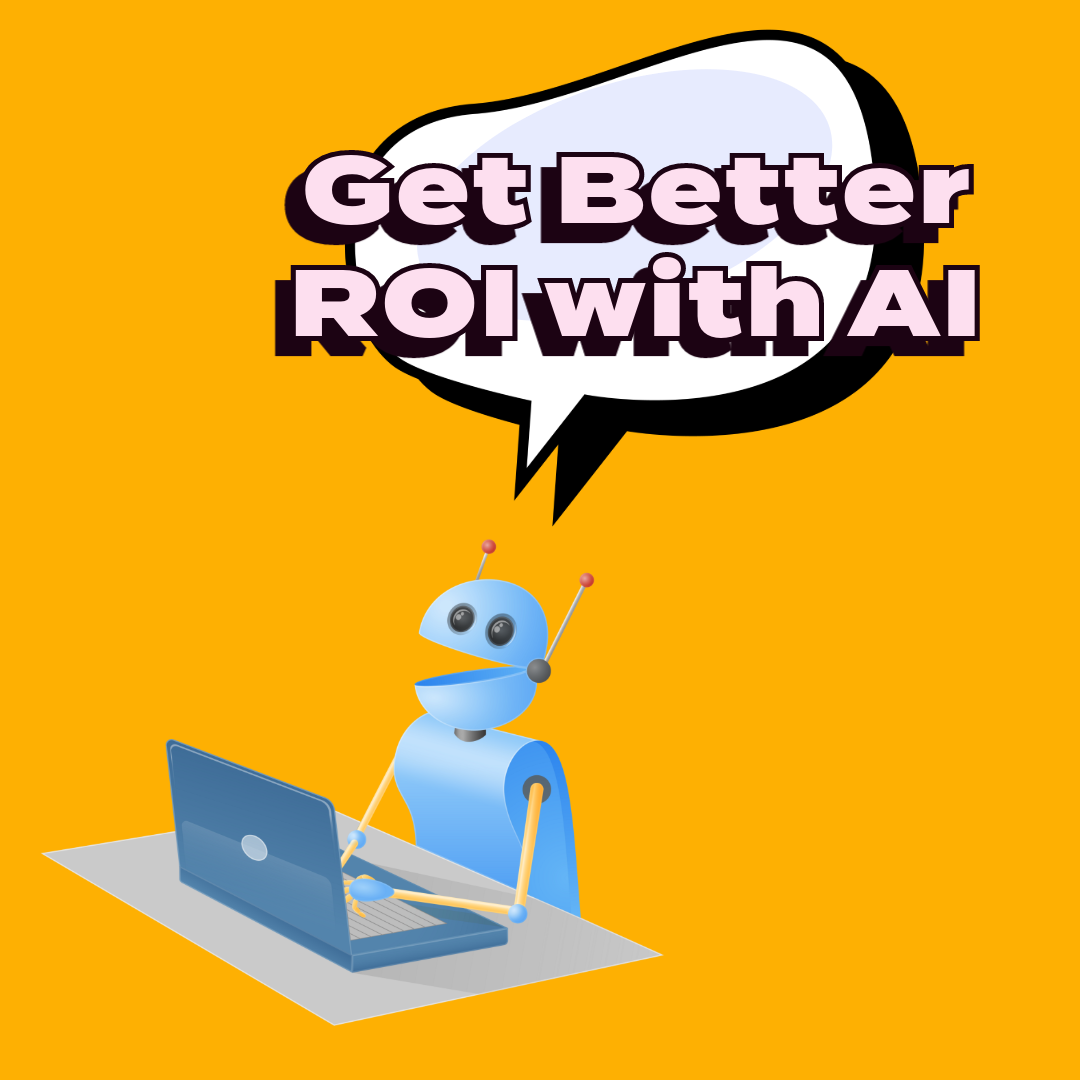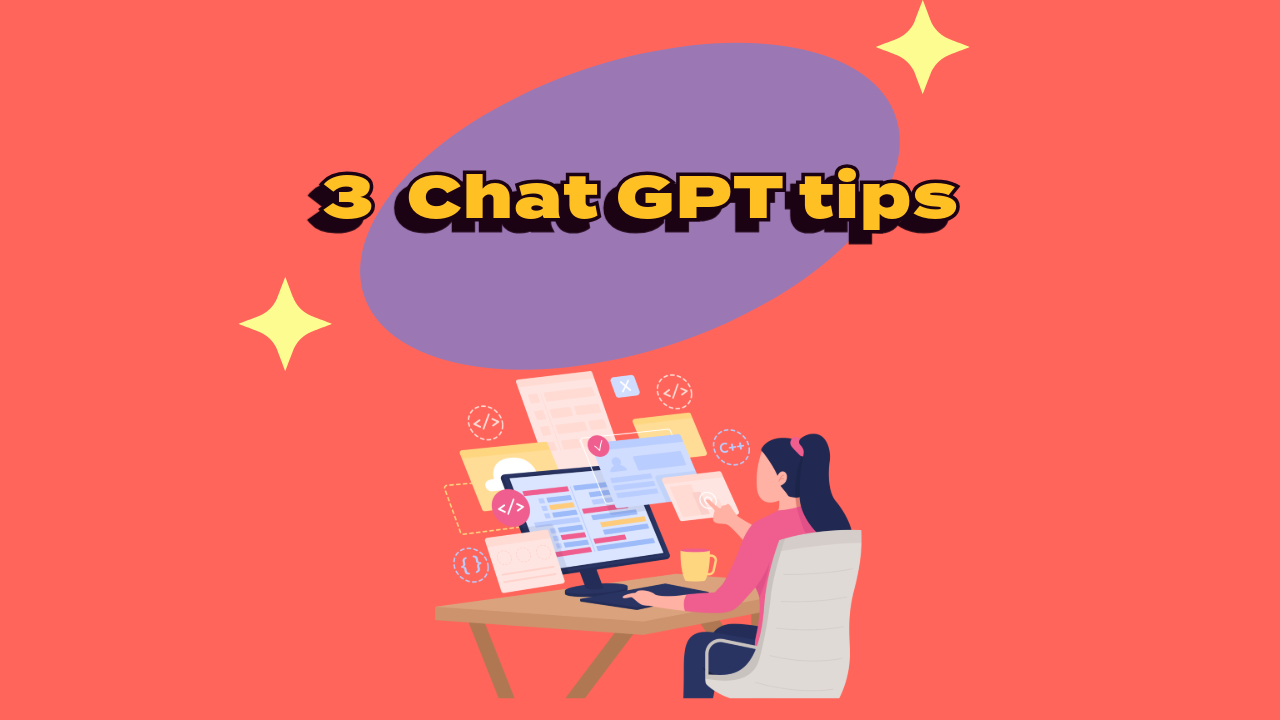Affordable AI Strategies for Small Businesses on Tight Budgets
Technology is moving fast. Smart business leaders are moving with it.

Artificial Intelligence (AI) isn’t an exclusive playground for big gnarly businesses anymore. Small businesses, even with limited budgets, can harness the power of AI to drive growth and efficiency.
Here are some practical and affordable strategies to integrate AI into small businesses, while aiming for that high Return on Investment (ROI).
10 Ideas to Implement AI as a Small Business
- Automated Customer Service: Implement AI-powered chatbots to handle basic customer inquiries.
- Average Cost: Starting from $50/month for basic packages.
- Why You Need It: AI chatbots can handle a high volume of queries simultaneously, reducing wait times and improving customer satisfaction. They're cost-effective compared to hiring additional staff and operate 24/7. Something to note, however, is a generational gap in responses to Chatbot implementation. Check out this post to learn more.
- Data Analysis for Decision Making: Use AI tools for analyzing market trends and customer behavior.
- Average Cost: Approximately $100-$1000/month depending on the complexity of tools.
- Why You Need It: AI-driven data analysis tools provide deep insights into market trends and customer behavior, this helps with data-driven decision-making. This can lead to more effective strategies and better targeting of resources.
- AI in Inventory Management: Apply AI for optimizing inventory levels and reducing waste.
- Average Cost: Around $200-$600/month for small to medium-sized businesses.
- Why You Need It: AI helps in accurately forecasting inventory needs, reducing overstocking or stockouts. This leads to cost savings and ensures that products are available when customers need them.
- Personalized Marketing Campaigns: Utilize AI for targeted advertising and personalized email marketing.
- Average Cost: Can start from $300/month for AI-powered marketing platforms. Otherwise you can integrate some into your existing systems.
- Why You Need It: AI enables hyper-personalization in marketing, leading to higher engagement and conversion rates. It helps small businesses compete effectively by targeting the right audience with the right message.
- Efficient Bookkeeping with AI: Automate financial processes like invoicing and payroll with AI systems.
- Average Cost: Typically ranges from $100 to $500/month.
- Why You Need It: Automating bookkeeping tasks reduces errors and frees up time for more important work. AI-driven systems can also provide real-time financial insights, helping with financial management.
- AI for Competitive Analysis: Leverage AI tools to monitor competitors and industry trends.
- Average Cost: Around $250-$750/month for comprehensive tools.
- Why You Need It: Staying ahead of competitors is crucial. Competitor tracking helps businesses perform 50% better on average. AI tools can provide insights into competitor strategies, market changes, and industry trends, allowing your business to adapt and strategize.
- Enhanced Security with AI: Use AI-driven security systems for your digital assets.
- Average Cost: Starts from $100/month for basic security solutions.
- Why You Need It: AI-driven security systems provide proactive protection against cyber threats, safeguarding digital assets and customer data. This is vital in building customer trust and maintaining a secure online presence, especially with current trending topics of AI and ethics.
- Predictive Maintenance: Implement AI to predict and prevent equipment failures.
- Average Cost: Typically around $300-$1000/month, depending on the scale of operations.
- Why You Need It: AI can predict equipment failures before they occur, reducing downtime and maintenance costs. This is crucial for businesses that rely heavily on machinery and technology.
- AI-Enabled Sales Assistance: Use AI for lead generation and sales forecasting.
- Average Cost: From $200/month for AI sales tools.
- Why You Need It: AI can analyze customer data to predict buying patterns, helping in generating leads and increasing sales. This targeted approach ensures more efficient use of resources and higher conversion rates.
- Customized Product Recommendations: Implement AI to suggest products to customers based on their browsing history.
- Average Cost: Around $250-$600/month for recommendation engines.
- Why You Need It: AI-driven recommendations increase customer engagement and sales by suggesting relevant products to customers. This personalization enhances the shopping experience and can lead to higher customer loyalty.
Best AI Brands & Tools for Small Businesses
Small businesses need AI solutions that are both affordable and effective. Here, we explore a range of AI tools and platforms designed specifically for smaller scale operations. These tools can be integrated seamlessly into various business functions, enhancing efficiency and decision-making without a hefty price tag.
- Customer Service: Chatbot Platforms
- Examples: Dialogflow by Google, Chatfuel, Drift
- Integration: These tools allow businesses to create and integrate AI chatbots into their websites or social media platforms. They can handle customer inquiries, provide instant responses, and even book appointments, freeing up human resources for more complex tasks.
- Data Analytics: Business Intelligence Tools
- Examples: Tableau, Microsoft Power BI, Zoho Analytics
- Integration: Small businesses can use these tools for analyzing customer data, sales patterns, and market trends. These platforms offer user-friendly interfaces and can integrate data from various sources, providing actionable insights through visual dashboards.
- Inventory Management: AI-Powered Forecasting Tools
- Examples: Slimstock, Lokad, Blue Yonder
- Integration: These tools use AI to forecast demand and optimize stock levels, helping to reduce waste and ensure product availability. They can be integrated with existing inventory management systems for smoother operations.
- Marketing: AI-Driven Marketing Automation
- Examples: HubSpot, Marketo, Mailchimp’s AI features
- Integration: These platforms utilize AI for personalizing marketing content, segmenting audiences, and optimizing campaign timings. They can be integrated with existing CRM systems to tailor marketing efforts based on customer behavior and preferences.
- Financial Management: Automated Bookkeeping and Invoicing
- Examples: QuickBooks, FreshBooks, Xero
- Integration: AI features in these tools can automate repetitive tasks like invoicing, expense tracking, and even tax preparation. They provide real-time financial insights, making them invaluable for small business financial management.
- Competitive Analysis: Market Intelligence Tools
- Examples: Crayon, Adthena, SEMrush
- Integration: These tools use AI to track competitors’ online activities, market trends, and customer sentiment. This information can help small businesses in strategizing and staying ahead in the market.
- Security: AI-Enabled Cybersecurity Solutions
- Examples: CrowdStrike, Darktrace, Cylance
- Integration: These cybersecurity platforms use AI to detect and respond to online threats in real-time, protecting businesses from cyber-attacks and data breaches.
- Sales: AI-Powered Sales Tools
- Examples: Salesforce, Zoho CRM, Pipedrive
- Integration: These tools use AI for lead scoring, sales forecasting, and customer interaction analysis, helping sales teams focus on high-potential leads and opportunities.
- Product Recommendation Systems
- Examples: Reco, Nosto, Algolia
- Integration: E-commerce businesses can use these tools to offer personalized product recommendations to customers, enhancing the shopping experience and potentially increasing sales.
Skills Needed to Use AI Effectively
- Data Literacy: This involves the ability to read, analyze, and communicate with data effectively.
- Basic Programming Knowledge: Not every team meber needs to be a coding expert, but having a basic understanding of programming can be extremely beneficial. Popular languages include Python because it is used so often in AI.
- Understanding of Machine Learning Concepts: Machine Learning is a subset of AI. This includes algorithms, neural networks, and natural language processing.
- Communication Skills: Not everyone knows how to communicate AI’s role and impact effectively. This includes explaining technical concepts to your team and all the relevant stakeholders.
Potential Risks of Implementing AI
- Over-Dependence on Technology: Human judgment will always be crucial for any business. AI is great for automation, but it can never replace having at least one human present.
- Data Privacy Concerns: If your business deals with large volumes of data, including sensitive customer information, you must comply with the best practices in data security.
- AI-Created Errors: AI systems, especially those involving machine learning, are only as good as the data they’re trained on. If the data is biased or flawed, it can lead to AI-driven errors.
- Customer Perception: How customers perceive the use of AI can be a risk. There is a generational divide in how customers respond to it. You can read my full breakdown here.
Conclusion
My comprehensive guide outlines key strategies and tools with AI that are practical for any small business. By adopting AI, your small business can enhance customer service, optimize operations, and stay competitive.
Key Points
- AI is Accessible and Affordable: Small businesses can implement AI without incurring prohibitive costs. With solutions starting as low as $50/month, AI technology is within reach for businesses operating on tight budgets.
- AI Enhances Efficiency and Decision-Making: Whether it’s through automated customer service, data-driven decision-making, or predictive analytics, AI can significantly streamline business processes and improve overall efficiency.
- Customized AI Tools for Diverse Needs: From marketing to inventory management, there are specialized AI tools available that cater to the unique needs of different business functions.
- Skills and Knowledge are Key: Successful implementation of AI requires basic data literacy, an understanding of machine learning concepts, and a willingness to adapt and learn.
- Be Mindful of the Risks: While AI offers numerous benefits, businesses should be aware of potential risks, such as over-dependence on technology and data privacy concerns, and take steps to mitigate them.










